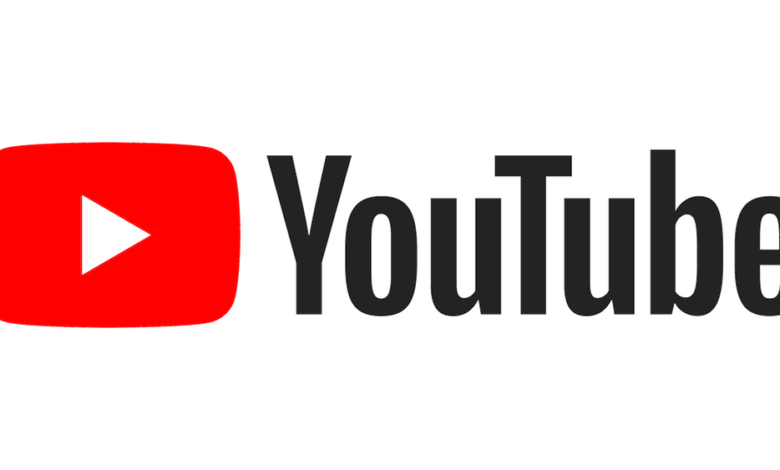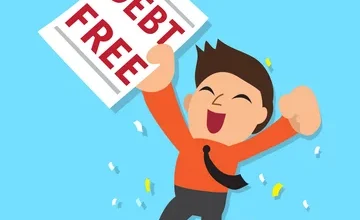YOUTUBE NEW AI 2024:POWERFUL!

YOUTUBE, Please use the sharing tools found via the share button at the top or side of articles. Copying articles to share with others is a breach of FT.com’s Terms and Conditions and Copyright Policy. To obtain additional rights to share content, you can email licensing@ft.com.
YOUTUBE, Subscribers may share up to 10 or 20 articles per month using the gift article service. More information about sharing and licensing can be found by visiting https://www.ft.com/tour. YouTube, the popular video-sharing platform owned by Google, is currently in negotiations with major record labels to obtain licenses for their musical catalogs.

The goal is to utilize these licensed songs as training data for artificial intelligence (AI) tools that can clone and generate music mimicking the styles of popular artists. YouTube hopes that by offering upfront payments to the labels, they can convince a skeptical music industry to embrace this emerging technology.
The need for licensed content is critical, as YouTube prepares to launch new AI-powered music creation tools later this year. According to sources familiar with the matter, the company has recently made lump-sum cash offers to the three major record labels – Sony Music, Warner Music Group, and Universal Music Group – in an attempt to persuade more artists to allow their music to be used in the training of these AI music generation systems.
However, the music industry remains deeply divided on the issue of AI-generated music. Many artists are fiercely opposed to the idea, fearing that it could significantly diminish the perceived value and uniqueness of their creative work. Any move by a record label to force their artists into such a scheme would be met with immense controversy and backlash from the artistic community. The negotiations between YouTube and the record labels highlight the complex and evolving landscape of music technology.
As AI-powered tools continue to advance, the industry must grapple with the potential implications for artists, rights-holders, and the overall value of musical creativity. The outcome of these talks could have far-reaching consequences for the future of music production, distribution, and consumption. Here is an expanded version of the original passage: The intersection of music, technology, and intellectual property rights is a complex and evolving landscape.
Technically, music companies hold the copyrights to much of the content used in emerging AI-powered tools, and they are grappling with how to navigate this new frontier. As one executive at a major music company noted, “Technically the companies have the copyrights, but we have to think through how to play it. We don’t want to be seen as a Luddites, resisting technological progress.” YouTube, one of the pioneers in this space, began testing a generative AI tool last year that allows users to create short music clips by entering a text prompt.
Dubbed “Dream Track,” the product was designed to mimic the sound and style of well-known artists. However, the initial test phase was limited, with only 10 artists agreeing to participate, including Charli XCX, Troye Sivan, and John Legend. The tool was made available to a small group of creators as the company navigated the delicate balance between harnessing the potential of AI and respecting the rights of the artists and music companies. Undeterred, YouTube is now seeking to expand its AI song-generation capabilities.
Table of Contents
The company is in discussions with dozens of artists to roll out a new and improved AI song generator later this year, according to sources familiar with the matter. This push comes as AI companies like OpenAI are striking lucrative licensing agreements with media groups to train their large language models, which power products like the popular ChatGPT chatbot. These deals are reportedly worth tens of millions of dollars to the media companies, underscoring the high stakes and potential rewards in this rapidly evolving landscape.
YouTube’s approach, however, is not without its challenges. The company acknowledges that it is not looking to expand the Dream Track tool but is instead exploring other experiments in collaboration with record labels. This measured approach reflects the industry’s cautious yet curious stance towards the integration of AI in music creation and distribution. As the technology continues to advance and the demand for AI-generated content grows, the music industry finds itself at a crossroads.
The delicate balance between embracing innovation and safeguarding the rights and interests of artists and copyright holders remains a pressing concern. The outcome of these negotiations and collaborations will undoubtedly shape the future of music creation and consumption in the digital age. The proposed changes to the licensing system would not follow a one-size-fits-all approach. Instead, the new licenses would be tailored to specific groups of artists, rather than being broadly applicable.
This targeted approach is intended to better address the unique needs and circumstances of different segments of the creative community. According to individuals who have been briefed on the ongoing discussions, the new licensing framework would involve a more nuanced and customized system. Rather than issuing blanket licenses that apply indiscriminately, the aim is to develop a more refined and differentiated approach that takes into account the distinct challenges and requirements of various artist populations.

This shift in licensing strategy reflects a recognition that the challenges and needs of the creative industry are not uniform across the board. By crafting licenses that are specific to certain artist demographics or genres, the proposed changes aim to provide more relevant and effective support, ensuring that the licensing system better aligns with the diverse realities faced by those working in the arts and entertainment sectors.
The details of these targeted licenses are still being finalized through ongoing discussions and consultations with stakeholders. This collaborative approach is intended to ensure that the new licensing structure adequately addresses the concerns and needs of the affected artists, while also maintaining a balance with other industry interests and requirements.
The new deals that YouTube is reportedly negotiating with music labels are said to be quite different from the traditional royalty-based arrangements that labels have in place with streaming services like Spotify and Apple Music.
Instead, these new deals are expected to be more akin to the one-off payments that social media platforms like Meta and Snap make to entertainment companies in exchange for access to their music catalogs. It would ultimately be up to the record labels themselves to encourage their artists to participate in these new YouTube projects. As a result, the final monetary amounts that YouTube might be willing to pay the labels for this access remain undetermined at this stage.
The people familiar with the negotiations stated that the deal terms could still change as discussions continue between the parties. These new YouTube initiatives are likely to be integrated into the platform’s Shorts feature, which is designed to compete directly with the hugely popular TikTok app.
The specific details of the new AI-powered tool that YouTube is developing, which is unlikely to carry the “Dream Track” branding, are still being finalized. Interestingly, this latest move by YouTube comes as the major record companies have taken legal action against two AI start-ups, Suno and Udio. The labels allege that these companies are illegally using copyrighted music recordings to train their AI models, which they claim is a violation of copyright law.
This underscores the complex and evolving landscape as the music industry grapples with the growing influence of AI and new digital platforms The industry group is seeking “up to $150,000 per work infringed,” according to the filings. After facing the threat of extinction following the rise of Napster in the 2000s, music companies are trying to get ahead of disruptive technology this time around.
The labels are keen to get involved with licensed products that use AI to create songs using their music copyrights — and get paid for it. The music industry, which has faced significant challenges in the digital age, is now grappling with the emergence of a new disruptive technology: artificial intelligence (AI). According to the filings, the industry group is seeking up to $150,000 in damages for each work that is infringed upon.
This aggressive stance highlights the industry’s determination to protect its intellectual property and maintain control over the use of its music. The rise of platforms like Napster in the 2000s posed a significant threat to the music industry, as it allowed for the widespread sharing and distribution of copyrighted content without compensation.
Determined not to be caught off guard again, the music companies are now taking a proactive approach, seeking to get involved in the development and deployment of AI-powered tools that can create new music using their existing copyrights. The labels are particularly interested in licensed products that utilize AI to generate songs based on their musical repertoire.
This represents a significant shift in the industry’s approach, as they seek to embrace and monetize the potential of this disruptive technology, rather than attempting to resist it outright. Sony Music, one of the major record labels, is currently in negotiations with tech companies, such as YouTube, to make some of its music available for these AI-powered tools.
Similarly, Warner Music Group and Universal Music Group, whose artists participated in the initial testing phase, are also in talks with YouTube to expand the scope of this product offering. However, this move has not gone unchallenged. In April, more than 200 musicians, including the likes of Billie Eilish and the estate of Frank Sinatra, signed an open letter expressing their concerns.
The letter stated that “unchecked, AI will set in motion a race to the bottom that will degrade the value of our work and prevent us from being fairly compensated for it.” YouTube, for its part, has defended its approach, stating that it is “always testing new ideas and learning from our experiments; it’s an important part of our innovation process.” The tech company seems committed to pushing forward with the development of AI-powered music creation tools, despite the industry’s concerns.
This ongoing tension highlights the complex and often contentious relationship between the music industry and the rapidly evolving digital landscape. As the industry grapples with the challenges and opportunities presented by AI, it will be crucial for all stakeholders to find a balanced approach that protects the rights of artists and composers while also embracing the potential of this transformative technology. path with AI and music as we build for the future.

As we navigate the exciting and ever-evolving landscape of the future, the intersection of artificial intelligence (AI) and music holds immense potential. This path represents a captivating synthesis of cutting-edge technology and the timeless art of sound, promising to redefine the way we create, experience, and interact with music. The integration of AI into the realm of music opens up a world of possibilities.
From the augmentation of creative processes to the personalization of listening experiences, AI can serve as a powerful tool in the hands of composers, producers, and musicians. Through machine learning algorithms and neural networks, AI can assist in generating novel musical ideas, orchestrating complex arrangements, and even predicting audience preferences, ultimately enhancing the creative potential of artists.
Moreover, the intersection of AI and music holds the promise of revolutionizing the way we consume and engage with music. Intelligent algorithms can analyze and understand individual listening patterns, curating personalized playlists and recommendations that cater to the unique tastes and preferences of each listener. This personalized approach not only enhances the enjoyment of music but also fosters deeper connections between artists and their audiences.
As we build for the future, the path of AI and music holds the potential to transform the way we create, distribute, and experience the universal language of sound. By embracing this convergence, we can unlock new realms of artistic expression, foster greater creative collaborations, and ultimately shape a future where the boundless potential of technology and the timeless artistry of music coexist in perfect harmony.
YouTube Music already lets you search for music using voice commands, but the disclaimer about the experimental nature of AI-generated responses here could also suggest a more conversational search option. This could potentially allow users to search for music in natural language, like searching for songs by describing the music videos or asking for songs similar to [artist/song name], etc.
YouTube Music’s current voice search functionality is just the tip of the iceberg when it comes to the platform’s potential for leveraging AI and natural language processing. The disclaimer about the experimental nature of AI-generated responses in the app hints at more advanced search capabilities on the horizon.
Imagine being able to simply tell YouTube Music, “Play me something similar to the latest Adele song, but with a more upbeat tempo,” and having the app understand your request and serve up relevant music recommendations.
This kind of conversational search experience would be a game-changer, allowing users to explore and discover new music in a more intuitive, natural way. Such a feature would align seamlessly with Google’s broader strategy of integrating AI and natural language processing across its products and services. The tech giant has been at the forefront of these advancements, leveraging machine learning and language models to enable more fluid, human-like interactions with its digital assistants and search engines.
Bringing this level of conversational search to YouTube Music could significantly enhance the user experience, making music discovery more accessible and personalized than ever before. Users would no longer be limited to searching by artist, song title, or genre; instead, they could describe the vibe, mood, or characteristics of the music they’re looking for, and the app would respond accordingly.
Of course, these are mere speculations based on the hints found in the app’s code. The actual implementation and rollout of such a feature remain to be seen. But the potential is undeniably exciting, and it showcases the ongoing evolution of music streaming platforms to cater to the evolving needs and preferences of modern listeners.
The YouTube Music app has been quietly evolving, with developers digging deep into its codebase to uncover intriguing new features on the horizon. One such feature that has caught the attention of tech enthusiasts is the “Ask for Music” functionality.
According to the evidence found within the app’s code, this upcoming capability may revolutionize the way users discover and access their favorite tunes. By leveraging the power of conversational prompts and voice commands, the “Ask for Music” feature could allow listeners to simply speak their desires and have the app respond with tailored musical recommendations or direct playback.
This exciting development aligns with the growing trend of voice-controlled digital assistants and the increasing demand for more natural, intuitive interactions with our digital devices. As users become accustomed to the convenience of hands-free, voice-driven interactions, the integration of such a feature into the YouTube Music app could provide a significant advantage over competing music streaming services.
In addition to the “Ask for Music” feature, the app is also undergoing a visual overhaul, with a brand-new launch animation in the works. This visual refresh, while seemingly a minor change, can often signify a larger strategy shift or the introduction of more substantial updates.
It suggests that Google, the parent company behind YouTube Music, is committed to continuously enhancing the user experience and staying ahead of the curve in the competitive music streaming landscape.
The combination of these advancements – the “Ask for Music” capability and the visual revamp – indicates that Google is actively investing in the future of YouTube Music. By leveraging the power of artificial intelligence and voice recognition technology, the company aims to create a more engaging, personalized, and effortless music listening experience for its growing user base.
As the music streaming industry continues to evolve, these developments within the YouTube Music app are a testament to Google’s dedication to innovation and its commitment to providing users with cutting-edge features that can redefine the way they interact with and discover music.





